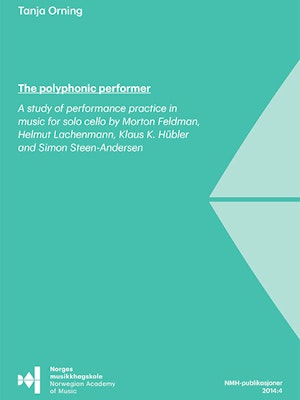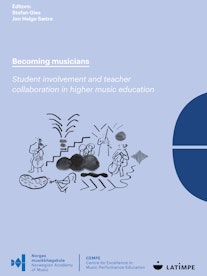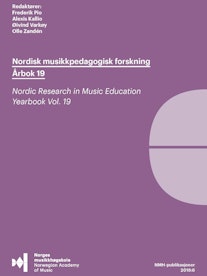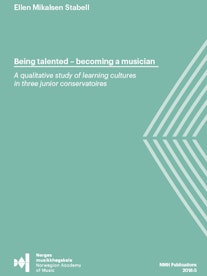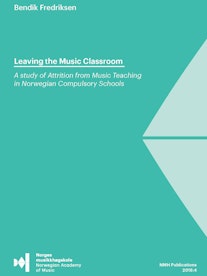Since World War II, a new repertoire has arisen that in many respects proposes a new role for the cellist and the cello, breaking with the previously established role of musician. The purpose of Tanja Orning's project is to investigate, conceptualize, and document this new role on the basis of central works by four composers of contemporary cello repertoire: Morton Feldman, Helmut Lachenmann, Klaus K. Hübler, and Simon Steen-Andersen.
The aesthetic strength and expressive clarity of these works provide rich incentive to explore new approaches to the music, the resources and expertise called for, and the challenges that they represent. This know-ledge contributes to clarifying a contemporary performance practice, and to understanding how the musician's role has evolved since 1950. Orning’s investigation circles around four main topics: notation, Werktreue (fidelity to the work or its composer), idiomaticism, and body (the physical relationship between instrument and performer).
In order to explore and analyze these remarkable and peculiar pieces, theoretical and methodical applications that correspond to the nature and demands of the research are required. Tanja Orning argues that the perfor-mer needs new skills and expertise for this repertory, and investigates these new requirements through her own process of practice and performance. In seeking the answers to the research questions, she draws on artistic practice as a vehicle, tool, or method that situates her study within artistic research.
The project is thematically confined to the repertoire of the cello; however, the ambition of the project is to contribute to the expansion of the scope of discussion within the field of performance practice for performers, compo-sers, conductors, and musicologists alike. In addition to the dissertation, the artistic result of the project comprises a DVD recording of Orning's performances of the central works.
- NMH-publikasjoner 2014:4.
